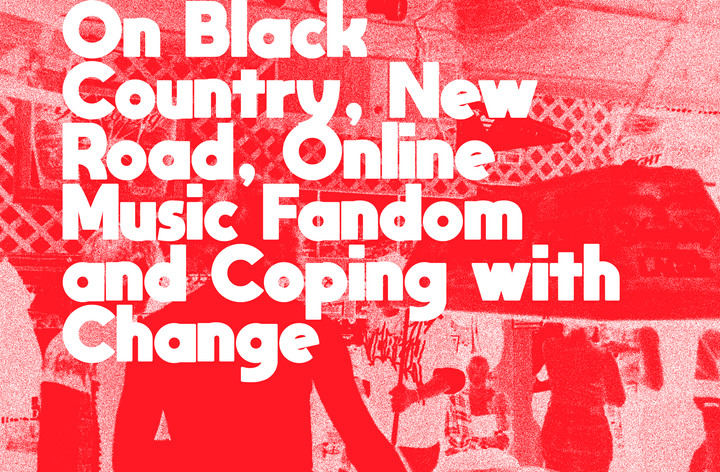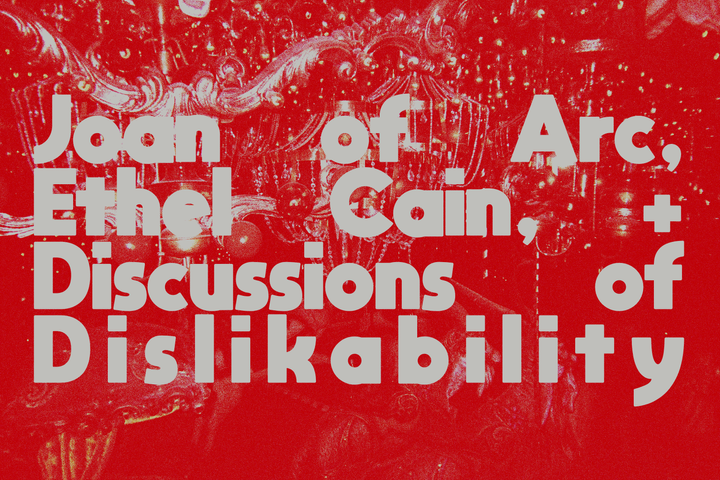On Music Criticism + Failed Internet
some words about reviews and the state of the internet

Every so often we— those invested in the world of writers who are verified on Twitter thanks to the music reporter job they had in 2015 at a local publication that no longer exists — have to discuss The Negative Review. All the relevant groups chime in. Defensive freelancers, defensive musicians, defensive fans— the gang’s all here.
For the record, I don’t have much skin in the game. I’m no critic and my capacity for caring about reviews is limited, but it’s a routine I’m a part of nonetheless and it always sparks the same thought: what is the point of album reviews?
Not in a cynical way or a dismissive way, but more in a broad way. What do we hope people get out of criticism and what do fans and musicians want from criticism? What reaction do writers expect from their criticism? Do negative reviews have a place in these unprecedented times? What is the point?
The utility of a review— when it’s done well—is to give context and give a point of view on a piece of art. It’s one person’s opinion often through the lens of a publication’s editorial voice. Whether you will vibe with the editorial voice of a publication (or the individual actually writing) is not guaranteed and that shouldn’t be necessary for a review to do its job. I disagree with some of my favorite writers about almost everything and that has both informed and reinforced my relationship with music for years.
This album is more important to me than Nevermind so of course I got mad at this essay, so of course I like this essay very much! https://t.co/jfyNwW05Tt
— Zachary Lipez (@ZacharyLipez) July 2, 2021
If you’re a writer, I think you should hope your work gets a reaction. Positive, negative, doesn’t matter. Of course, you shouldn’t accept things like death threats as the norm, but it’s unreasonable and ridiculous to be like, “why are people complaining?!” Well, it’s because you said something negative! Why would you not expect that? Is that not a good thing? I feel it’s a good thing (again, to a point.) If you don't want to see any reactions to your stuff, then I suggest leaving the internet or getting real good at muting conversations at least.
I think, for the most part, it's not new that fans get mad about reviews, though. The problem is more that there aren't as many spaces for fans to connect with each other and instead what they have is bullshit platform internet. Everybody is exposed to a constant, unending barrage of strangers' thoughts. People who may have once been on forums, are now on the same platform as writers and musicians and your aunt Lisa. It has changed the nature of fandom for the worse, yes, but it's also changed everything for the worse. The forced making of musicians and writers into personalities making content is due to the same thing. We all have the same common enemy, but we don't feel we have power to change it so instead we just turn on each other.
Does the negative review have a place in the world? Sure, I think so. If only because it seems like that's a situation where writers are allowed to be funny. In theory, a review can steer you toward or away from something in the face of endless algorithm suggestions. That's a positive thing. Being told "hey, this isn't worth your time" with some analysis is valuable. Becoming familiar enough with a writer's taste that if they love (or hate!) something you can know how you'll probably feel is valuable. Getting some context for something you're intrigued by is good.
I have a theory that when people say they want to see more negative reviews what they really mean is they want to be entertained more. It is tiresome to read a review that regurgitates a press release surrounded by flowery language. As publications have dwindled and the places that pay become general interest music sites, younger writers aren't necessarily rewarded for an individual point of view or their individual voice. You're rewarded for putting your head down and trying to collect bylines. That's fine, I get that, but sticking to the guidelines of publication voice aren't why a writer becomes someone people will give a shit about. That's the point.
Recently Pitchfork Reviews Editor (Reviews Director?) Jeremy Larson said something to the effect of, "there isn't as much music as toxic as 5 and under anymore" (a paraphrase, it's at the end of the episode of The Pitchfork Review on ambient music at about minute 29) and that's why there aren't as many super negative reviews. I think that's a ridiculous thing to say if taken at face value, but indicates something that I think is more interesting about the state of the music industry. If you can afford and secure a publicist that is necessary to get the attention of a Pitchfork editor (for the purposes of their work, I won't make any assumptions about personal listening habits), you probably make music that's mostly passable. It might be boring, but it won't be bad. Writers and editors aren't really hearing music that is made by people who don't have the means to also market it unless they've garnered some real good will through previous successful projects or personal relationships with people in those roles. Even then, who knows.
There aren't places for truly independent music to be discussed. There isn't space at the big publications for it. There is so much music you can't expect anything else, but the infrastructure is mostly nonexistent for independent promotion outside of your own personal social media. That sucks. The internet failed at being a place for democratizing music because the internet has turned into a capitalistic funnel.
There is an ever-expanding gap between the capital needed to make music and the capital needed to get that music out to anybody. There is so much music with zero reach because promoting music is almost impossible without hundreds of extra dollars a month for press that a lot of people just don't have. I would argue that even if you have the money, that reality of needing a publicist in order to feel like you even have a chance to break through is still a negative. Theoretical easy accessibility of music that is promised by the internet is not the same as an even playing field.
Anyway, the internet is bad. Most individuals aren't, you just weren't meant to have to interface with so many of them.
Miranda Reinert is a music adjacent writer, zine maker, podcaster and law school drop out based in Philadelphia. Follow me on Twitter to hear about hopefully not music criticism: @mirandareinert. You may also just send me small bits of money at @miranda-reinert on venmo if you want. As always, thanks for reading!



Comments ()